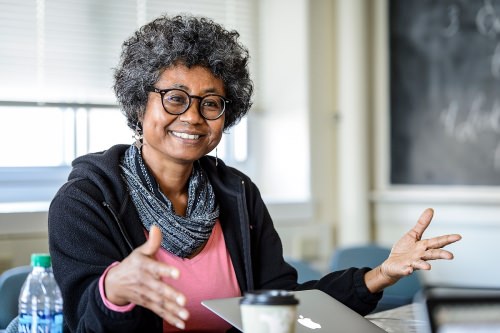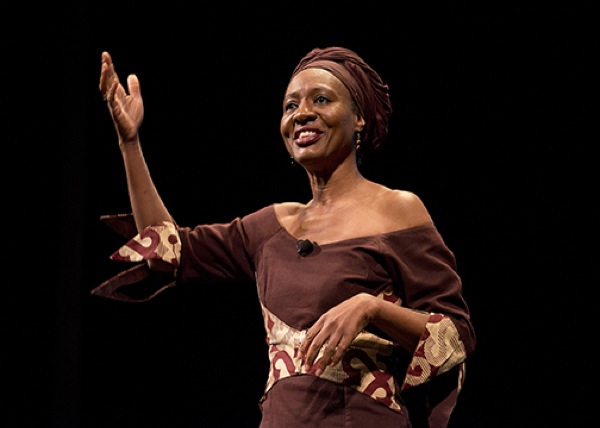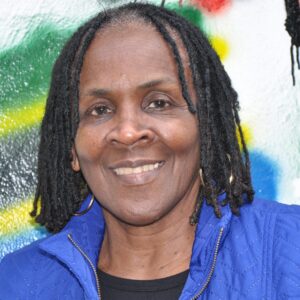About Jeanne
JEANNE GAUNA was a co-founder of the South West Organizing Project (SWOP), a prominent environmental, economic, and justice organization based in Albuquerque. She died on February 17, 2003, after a battle with cancer. Gauna was known for her outspoken commitment to justice, her international solidarity work, and her effective style of grassroots organizing. She had two sons and was married to Eric Schmieder.
After high school, Gauna moved to Albuquerque in her early twenties with her son Jason. She attended the University of New Mexico (UNM), where she studied history, culture, sociology, and politics of traditional New Mexican communities. While earning her Bachelor of Arts degree, she became active with the Chicano movement. She had her first experience walking a picket line when she and her mother stood in support of United Farm Workers at a Safeway store in Albuquerque’s Old Town.
From 1976 to 1980, she was employed as secretary to UNM’s Chicana/Chicano Studies program. Besides supporting the development of that program, she worked with diverse issue-oriented organizations such as: the Committee to Stop Grand Jury Abuse; the Committee Against Repression which, fought police brutality; the Albuquerque Boycott Committee, which helped organize the grape and lettuce boycotts and the Coors boycott; Citizens Against Nuclear Threats, which protested the underground storage of nuclear wastes at the Waste Isolation Pilot Plant site; Movimiento Estudiantil Chicano de Aztlan, which fought for the rights of Chicano and Chicano students; and the New Mexico Public Interest Research Group, which protested grand jury abuse and police brutality and involved itself with other community issues.
Gauna walked the picket lines in support of workers at Farrah Pants, local bakeries, Foodway, and Safeway and worked on other labor issues. She was involved in the antiwar movement on campus and protested the high number of Chicanos being killed in Vietnam.
Gauna’s social consciousness and political activism did not recognize geographical boundaries. She supported struggles for liberation in such countries as Chile, Nicaragua, El Salvador, Guatemala, South Africa, and Palestine. She first traveled to Cuba in 1978 to the World Festival of Youth and Students. Observing how democracy worked in Cuba, she embraced the importance of involving everyone in the decision-making processes that affected their lives.
During the 1970s, Gauna met and began to work closely with Richard Moore. After Moore became director of the regional office of the Children’s Foundation, he hired Gauna as office manager. The foundation administered federally funded food programs (Women, Infants, and Children—WIC), highlighting the inequities in distribution of wealth and access to basic goods and services. When federal funding was cut, Gauna and Moore decided to build an organization to confront the injustices and work with communities to organize themselves. Recognizing that “no one will do it for us,” Gauna and Moore formed and co-directed the South West Organizing Project (SWOP), drawing in many of the Chicano and Chicano activists with whom they had worked during the previous ten years.



